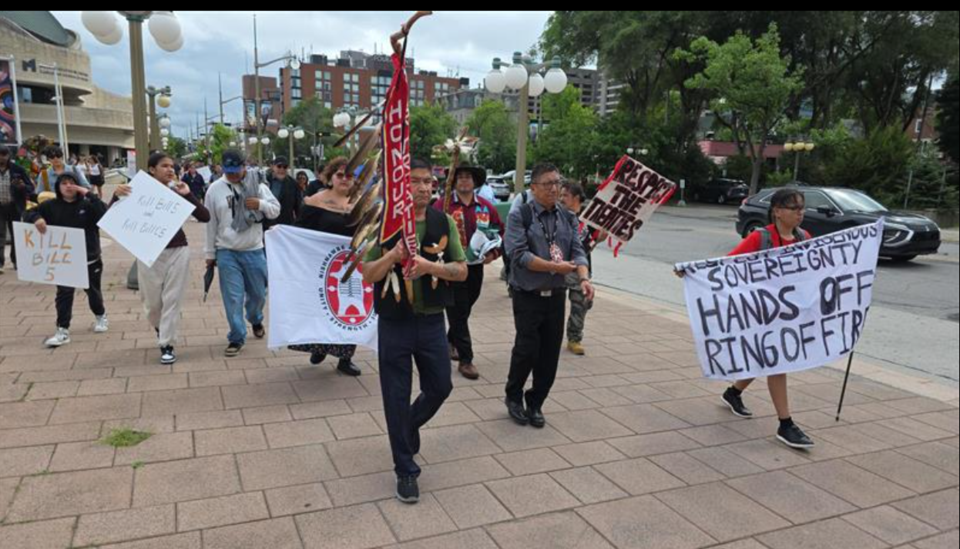A summit held in Ottawa last week between Prime Minister Mark Carney and Indigenous leaders, designed to open the conversation on the federal Building Canada Act, didn’t produce hopeful takeaways for two Indigenous political organizations.
“I want to trust this government, but I have been given little reason to,” said Nishnawbe Aski Nation (NAN) Grand Chief Alvin Fiddler, in a news release.
Similar in aim to a recently passed Ontario law, the federal Building Canada Act (Bill C-5), passed in June, allows the feds to bypass certain laws, regulations and assessments if an industrial project, like a mine in the Ring of Fire, is deemed by the government to be in the national interest.
Fiddler called the passage of Bill C-5 a “flawed process” from the start that left First Nations leaders out of the decision-making picture on what happens on their traditional lands.
NAN is a political organization representing 49 First Nation communities in the James Bay Treaty 9 and on the Ontario side of Treaty 5.
Fiddler said while listening to Carney and his cabinet ministers speak about resource projects, there was little acknowledgement that there are NAN communities without clean drinking water, and with inadequate housing, schools and emergency services.
“These and other conversations about nation-building never include the basic necessities and well-being of our communities,” Fiddler said in the release.
Until there is commitment from Ottawa to recognize Indigenous rights to control and protect their traditional territories, Fiddler said he can’t support the legislation.
The Anishinabek Nation responded with a list of principles of engagement that Ottawa, Queen’s Park and industry must commit to if the mining of critical minerals is to happen on its traditional lands.
“We are open to exploring partnerships provided that they are based on mutual benefit, shared values, and commitment to sustainable development,” said a news release with remarks attributed to Grand Council Chief Linda Debassige.
“Meaningful engagement” means its communities must be informed of the potential impacts of a given mining project and must have the means to participate in decision-making, said the release.
The Anishinabek Nation is a political advocacy organization for 39 First Nation communities in the southwest, southwest, Lake Huron and the Northern Superior area of the province.
The group said no mining-related activity will take place without consent of the communities. Indigenous knowledge must be incorporated into all phases of mine planning, environmental assessment and monitoring. And there is the expectation of a “fair and equitable share” of the economic benefits from mining on Anishinabek Nation lands.
The Nation insists that their knowledge of the environment must be incorporated into all stages of project planning, environmental assessments and monitoring.
“We will require rigorous assessments that go beyond conventional environmental impact,” the release said.
In taking a jab at the exploration industry’s free entry and digital claim-staking system, the group noted, that consent for projects must happen at the very beginning of the mining cycle, before exploration, development and mining begins.
Without these assurances, Anishinabek Nation said it will defend its interests through “all available means,” including legal challenges.




